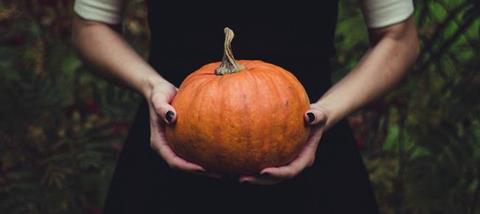Halloween is the season where the world examines deeply spiritual topics. Phil Wyman was so concerned that Christians were missing out on opportunities to share their faith that he moved to Salem, Massachusetts - the home of the 1692 witch trials. Here, he explains why Christians have nothing to fear from Halloween

I’m putting myself out in front of the firing squad, and standing at the post. I’ll even tie the blindfold over my own eyes.
I think Halloween is the most Christian holiday on our calendar.
I can hear a voice calling out, “Ready…Aim…” But please, don’t shout the command, “Fire!”. At least not until you’ve heard me out.
People wax eloquent about what the ancient Druids in Wales and Ireland did, but we don’t know for sure. We’re not even sure what happened at Stonehenge. If we can’t figure out the basic information about a massive stone formation that we can still visit, what makes us think that we have accurate information about a mid-autumn celebration among the Celts during years when we have little to no written history? Samhain remains a mystery to us.
Steve Roud, founder of the Roud Folksong Index, and an expert on folklore and superstition, wrote The English Year, about the calendar of celebrations and festival days in the history of England. In it, he attempts to shake the attachment of today’s Halloween to an ancient pagan festival of the dead, but acknowledges the near impossibility of accomplishing the task.
He says: “Hallowe’en is probably the most widely misunderstood and misrepresented day in the festival year, but so many now believe that it was originally a pagan festival of the dead that this belief is virtually impossible to shake. The facts, however, are very different, and are far more elusive and complex.”
Roud sees the formation of Halloween in the Christian celebrations of All Hallow’s Eve and All Souls Day with the remembrance of saints and loved ones who have passed on. He is not the only scholar to find Christianity’s marks all over this holiday.
Years ago, I found myself asking the question, “How is it that the world is focusing on these deeply spiritual topics, and we as Christians are running from this amazing opportunity?” So, I did something about it. I moved to Salem, Massachusetts - the home of the 1692 witch trials - where we have 31 days of Halloween.
Some Christians have other concerns about Halloween that do not relate to ancient pagan practices. Instead, they are concerned about things they have been told witches, neo-pagans and Satanists are doing on Halloween. You may not know any modern witches. But living in Salem has given me a peak into their world.
Since the late 20th century, neo-pagans have celebrated Samhain in many ways. Circles (known as covens) gather, open public celebrations occur, and Witches’ Balls are celebrated. But all of these ways of marking the season are far more recent than the much older Christian celebration of All Hallow’s Eve. All Saints’, and All Souls’ Day precedes the neo-pagan adoption of the day by centuries, and contrary to Hollywood exaggeration, witches are not after your black cat or your children.
So yes, I do see Halloween rooted in the Christian history of All Hallow’s Eve. But it's not the history that convinces me that Halloween is intrinsically Christian. Rather it is practices of people during this celebration.
I see people becoming more generous, and more open to their neighbours. This even exceeds the happy giving found around Christmas. Trick-or-treating encourages giving to strangers’ children without consideration of getting anything in return. It does not demand family connections. Halloween brings out the best in generosity, unlike Christmas, which is celebrated among immediate families, and induces incredible stress upon the lonely.
Most convincingly, the themes of Halloween storytelling and costuming are deeply spiritual. Yes, they are often horror themes, but consider their content for a moment. Tales of the devil and God, priests and demonic exorcisms, Hell and Heaven, apocalyptic doom and heroic saviours fill the pages and screens of October’s holiday. Halloween is a world of dark evils and miraculous interventions, but that evil is almost entirely expressed in drama and roleplaying. If you ask me, dark evil and miraculous intervention sounds like an overview of the Bible.
Phil Wyman is the author of The Reformation of Halloween: rethinking Christianity’s relationship to Halloween. He recently spoke at a day conference hosted by Church Mission Society entitled 'Mission among People who are Spiritual but not Religious'. You can listen to his talk and hear a podcast interview with him at churchmissionsociety.org/resources































